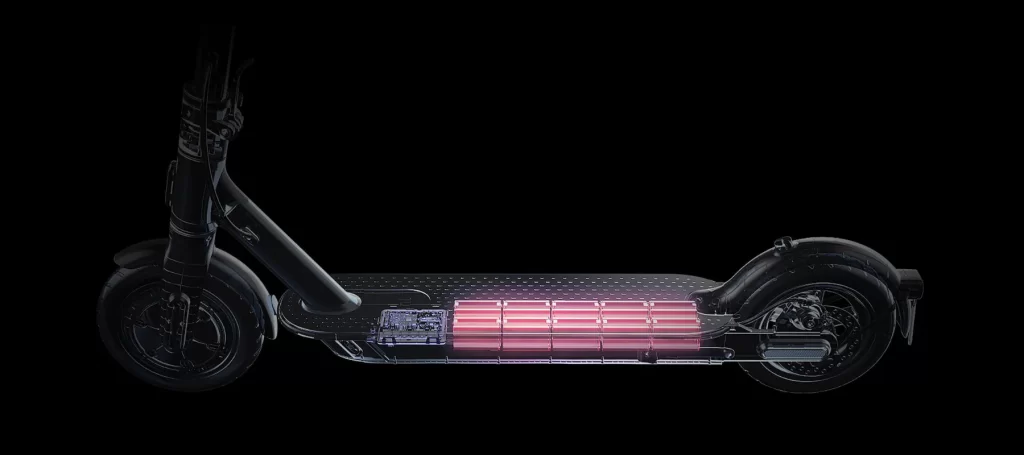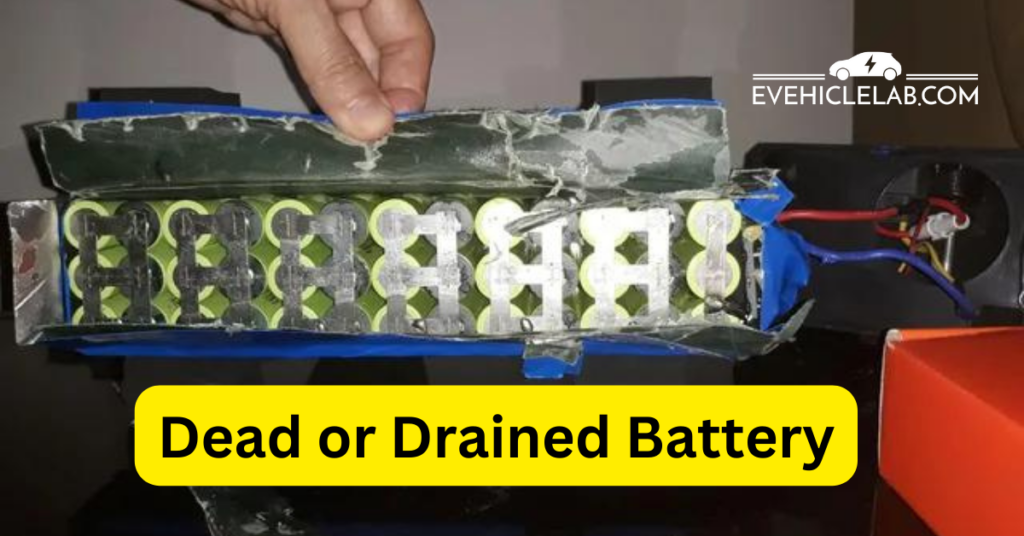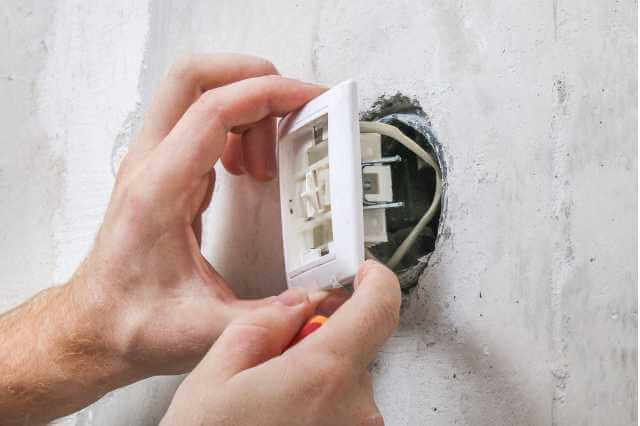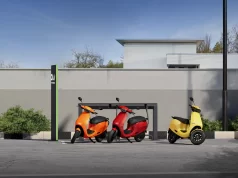Are you having trouble charging your Xiaomi scooter?
Do you plug in the charger and nothing happens?
If you answered yes to any of these questions, you are not alone.
In this article, we will explain why your Xiaomi scooter is not charging and how to troubleshoot it step by step.
How to Fix Xiaomi Scooter Not Charging Issues?
#1. Try using another charger
One common reason why your scooter may not charge is that the charger itself is faulty or damaged.
You can check this by plugging the charger into a power outlet and seeing if the LED light turns red or green.

If it stays green, it means that the charger is not working properly and needs to be replaced. You can buy a new charger from Xiaomi’s official website or from other online retailers.
#2. Look at the battery indicator and scooter display for additional alerts

On most Xiaomi scooters, there is a battery indicator or a display that provides information about the battery level.
If the scooter is not charging, check the display for any error messages or abnormal readings. It could be an indication of a faulty battery, charger, or connection.
#3. Cool Down Scooter Battery

Xiaomi scooters are equipped with a smart battery management system that protects the battery from overheating.
If the battery temperature rises too high during usage or charging, the scooter may stop charging temporarily. Allow the battery to cool down in a shaded area before attempting to charge it again.
#4. Tighten Battery Connection
One common issue with Xiaomi scooters is that the battery contacts may get loose or broken due to vibrations from riding.
This can cause poor connection between the battery and the BMS, which can prevent the scooter from charging or turning on.
To fix this, you need to inspect the battery contacts and see if they are intact and secure.
The battery has a light indicator that shows its status. If the light is green, it means the battery is fully charged. If the light is red, it means the battery is low or has an issue.
#5. Getting Out of Safety Mode
Another common issue with Xiaomi scooters is that the battery may enter a safety mode after overcharging or overvoltage.
This can happen if you leave your scooter plugged in for too long or if you use an incompatible charger.
To fix this, you need to reset the battery by disconnecting and reconnecting the large red and black wire connector.
Then, press the start button on the scooter and see if it charges. If this works, close the battery cover and set the “Range of charge mode” setting to “weak” on the Ninebot or Mi Home app until firmware version 1.31 is available.
#6. Check the Power Source
If the charging cable and adapter are not the culprits, check the power source you are using.
Sometimes, the issue may lie with the power outlet or extension cord. Plug the charger directly into a different outlet to see if the problem persists.
Avoid using extension cords or power strips as they might not deliver the required power to charge the scooter adequately.
#7. Reset the scooter
Reset Via Settings
Start by attempting a software reset via the connected application.
Check for any available updates and try resetting the scooter through its settings. If your model doesn’t support this feature, move on to the next steps.
Electrical Reset
In some cases, an electrical reset can fix the problem, especially for Xiaomi electric scooters.
However, please be cautious as this involves accessing the battery and electrical components, which can be risky and may cause irreversible damage if not done correctly.
a. Turn the scooter upside down and remove all screws on the footrest to access the battery compartment.
b. Locate the battery on the right side towards the rear of the scooter and the control board on the left, near the frame.
c. Disconnect the battery’s power (large red and black wires to the control board). The scooter should turn off at this point.
d. While keeping the battery disconnected, connect the charger to the scooter for about 30 seconds. Do not touch anything during this process.
e. Unplug the charger and reconnect the battery’s power.
f. Now, try turning your scooter back on using the Power button.
g. If the scooter turns on normally and doesn’t experience the same issue, the bug might have been resolved during the reset. However, if the problem persists, it could indicate a hardware problem.
#8. Check the Power Adapter
The first thing you should check is the power adapter and make sure it is properly plugged into the scooter and into a power outlet.
Sometimes, the adapter may be loose or faulty, which can prevent the scooter from charging.
You can also try charging the scooter with a different adapter to see if that works. If the adapter is not the problem, move on to the next step.
#9. Look for Physical Damage
Inspect your Xiaomi scooter for any visible physical damage that might be affecting the charging process.
Check the charging port on the scooter for debris, dirt, or obstructions that could prevent proper contact with the charging cable.
Clean the port gently using compressed air or a soft brush to ensure a secure connection.
#10. Update Firmware
Xiaomi occasionally releases firmware updates to address known issues and improve overall performance.
Check if there are any firmware updates available for your scooter model and follow the manufacturer’s instructions to update it.
Why is Xiaomi Scooter Not Charging?
#1. Defective charger

A defective charger is the most common cause of charging problems.
You can check the charger by plugging it into a power outlet and seeing if the LED light turns green. If the light is off or red, the charger may be faulty and need to be replaced.
#2. Blown fuse

Many e-scooters make use of a small fuse wired in between the battery and electronics to help protect against sudden power surges. If the fuse is blown, the battery will not receive any power from the charger.
You can check the fuse by opening the battery compartment and looking for a small cylindrical or rectangular component with two wires attached to it.
If the fuse is burnt or broken, you can replace it with a new one of the same rating.
#3. Faulty Charger port
Sometimes, the issue lies with the charging port. The port may be loose, dirty, or damaged, preventing a proper connection between the charger and the battery.
You can check the port by using a multimeter or a different charger and see if there is any voltage output.
If the port is faulty, you can clean it with a cotton swab and alcohol, tighten it with a screwdriver, or replace it with a new one.
#4. Battery issues

Sometimes, your e-scooter won’t charge because the battery is dead. The battery may have reached the end of its life cycle, been over-discharged, or suffered from water damage.
You can check the battery by removing it from the scooter and testing its voltage with a multimeter. If the voltage is zero or very low, the battery may be damaged and need to be replaced.
#5. Water damage
Water damage can affect both the battery and the electronics of your e-scooter.
If your e-scooter has been exposed to rain, snow, or water splashes, it may cause corrosion, short circuits, or other malfunctions.
You can check for water damage by opening the battery compartment and looking for signs of rust, moisture, or burnt components.
If you find any water damage, you can try to dry out the affected parts with a hairdryer or rice, or take your e-scooter to a professional repair shop.
#6. Faulty charger
If you have more than one electric scooter, there can be a mix-up of chargers. The voltage of the charger should be slightly higher than the voltage of the battery, such as 39 volts charger for charging 36 volts battery.
If you use an incorrect charger, it may not deliver enough power to charge your battery or damage your battery by overcharging it.
You can check the label on the charger and make sure it matches your battery’s voltage.
#7. Power outlet issues

Sometimes, the problem is not with your e-scooter or your charger, but with the power outlet you are using. The power outlet may be faulty, overloaded, or incompatible with your charger’s plug type.
You can check the power outlet by plugging in a different device and seeing if it works. If not, you can try using a different power outlet or an adapter.
For a quick solution, you can try resetting the scooter to its default settings and use only authorized MI applications until the issue is resolved.
Why does my Xiaomi scooter charger show a green light?
A green light on the charger indicates that the battery is fully charged, and the charging process is completed. The light stays green when the charger is not receiving any voltage from the battery pack.
There could be various reasons for this, including faulty batteries or chargers, which may cause a mismatch in the indicator.
It is important to address any charger or battery issues promptly to avoid potential harm to the scooter. If you encounter this issue, it is advisable to have your scooter checked by a mechanic to ensure its proper functioning.
In some cases, the continuous green light could be caused by software glitches.
If the internal software malfunctions and fails to identify the charging level correctly, the green light may stay on.
This is a rare issue, but if you suspect a software problem, it is best to have it inspected at a nearby service center.
Replacing Xiaomi M365 Battery?
If none of the above steps resolve the issue, it’s possible that your scooter’s battery has degraded over time and needs replacement.
The original battery that comes with the Xiaomi M365 scooter has a capacity of 7800 mAh, a voltage of 36V (max 42V), a weight of 1,500 g, and a charging time of about 5 hours.
It consists of 30 individual cells (18650mAh 10A each) connected in parallel and in series (10s3p). The color of the cells may be purple (older models) or blue.
There is also an alternative battery pack for the Xiaomi M365 scooter that uses LG lithium cells and has a capacity of 280.8Wh or 460.8Wh, depending on version 2.
The first version is suitable for the M365, Mi Essential, Mi 1S, and Mi Scooter 3 models, while the second version is suitable for the M365 Pro and Mi Pro 2 models. The battery pack also has a voltage of 36V and a charging time of about 5 hours.
According to some users, upgrading the battery from 5.6 Ah to 7.8 Ah can increase the power and speed of the Xiaomi M365 Essential scooter. However, this may also require changing the firmware and adjusting the settings of the scooter.
How can I tell if my Xiaomi scooter is charging?
The MI scooter’s charging port is equipped with an LED indicator. When you connect the charging port, the LED on the charger changes from red to green, indicating that it is charging.
To ensure proper charging of the MI scooter, always follow the standard procedure:
1. Lift the rubber flap covering the charging port.
2. Plug the charging adapter into the socket, ensuring a correct connection.
3. Once the charging is complete, carefully remove the plug and close the rubber flap.
Should I drain my Xiaomi scooter battery before charging?
No, it is not necessary to drain the MI scooter battery before charging. It is recommended to keep at least 10% battery charge so that the system can remain in active mode and evaluate the charging process effectively.
Charging from a completely drained state may initiate the charging process without the support of essential monitoring software.
Conclusion
A Xiaomi scooter not charging can be frustrating, but the good news is that most charging issues are easily fixable with some basic troubleshooting. Start by checking the charging cable, adapter, and power source.
Inspect the scooter for physical damage and ensure the battery is not overheating. If the problem persists, consider updating the firmware or exploring the possibility of battery replacement.
As a precaution, always follow the manufacturer’s guidelines for charging and maintaining your Xiaomi scooter.
Proper care and regular maintenance can prolong the life of your scooter’s battery and ensure it continues to serve you efficiently for years to come.
If none of these solutions work, it could be that your battery is damaged or failing and needs to be replaced. You can contact Xiaomi customer service or a local repair shop for assistance.




